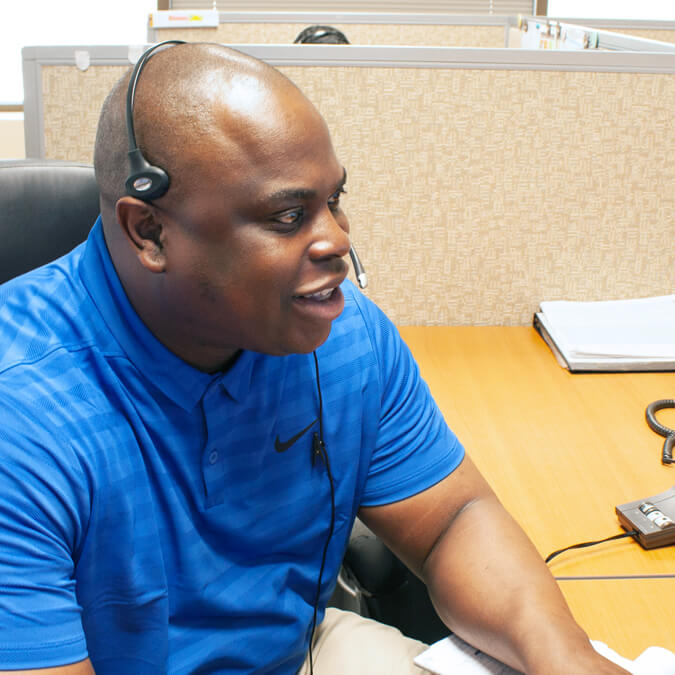
New York Ignition Interlock Requirements
In New York, anyone convicted of a DWI as of 2009 has to install an ignition interlock device (IID). If they want to regain any driving privileges, an interlock device New York approves is required as well. This guide will give you a thorough overview of getting an ignition interlock device, or IID, in New York state.
DEVICES AVAILABLE - If you need to install a device to meet your state requirements, we can help. Contact us today to schedule an installation appointment.
The New York Ignition Interlock Program
New York DWI laws are strict, and there are levels of alcohol-related offenses in New York state. A driver can be charged with driving while intoxicated, or DWI if their blood alcohol content (BAC) is equal to or more than .08 percent. If their BAC is more than .18 percent, they’ll be charged with aggravated DWI.
Those with a BAC under .08 may not get away without penalty either. Anyone with a BAC between .05 and .07 risks being charged with driving while ability impaired by alcohol (DWAI). When Leandra’s Law was passed in 2009, it mandated that anyone convicted of driving while intoxicated must install an ignition interlock device (IID) in any car they operate as well. CDL license holders are not eligible to receive a conditional CDL license, as only regular licenses are approved. Anyone who wishes to get a conditional license is required to get an ignition interlock New York approves as well.
What Happens if I Get a DWI in New York?
First DWI Offense
- Up to one year in jail
- $500 to $1,000 fine
- License revoked for minimum of six months
- Interlock device New York approves must be installed
Second DWI Offense (In 10 Years)
- Up to four years in jail
- $1,000 to $5,000 in fines
- License revoked for one year
- Ignition interlock New York approves must be installed
Third DWI Offense (In 10 Years)
- Up to seven years in jail
- $2,000 to $10,000 in fines
- License revoked for one year
- Interlock device New York approves must be installed
First Aggravated DWI Offense
- Up to one year in jail
- $1,000-$2,500 in fines
- License revoked for minimum of one year
Second Aggravated DWI Offense (In 10 Years)
- Up to four years in jail
- $1,000-$5,000 in fines
- License revoked for at least 18 months
Third Aggravated DWI Offense (In 10 Years)
- Up to seven years in jail
- $2,000-$10,000 in fines
- License revoked for at least 18 months
What Happens if I Fail to Complete or Refuse to Submit to a DWI Test in New York?
Refusing to take a sobriety test or blood alcohol test does not really help drivers, as there are still penalties for doing so. If you fail or refuse to complete a chemical test in New York, you risk the following penalties.
Chemical Test Refusal
- $500 civil penalty
- No jail time
- License revoked for one year, 18 months for commercial drivers
Chemical Test Refusal (Within 5 Years of DWI Charge or Previous Refusal)
- $750 civil penalty
- No jail time
- License revoked for 18 months, one year or until age 21 for drivers under 21, permanent CDL revocation for commercial drivers
How Do I Get a Conditional License in New York?
New York DWI laws allow offenders, and even some repeat offenders, to be eligible for a conditional license in New York. If you have your license suspended due to a drug or alcohol-related offense, complete the following to qualify for a conditional license:
First, Second, or Third Offenses
- Complete a course via the state’s Impaired Driver Program
- Pay required fees and fines
- Complete all program requirements and treatment requirements
- If on probation, must bring written permission from probation officer when applying
- Install an ignition interlock device New York approves
A conditional license does not give drivers full license privileges, however. Typically, locations one can drive to are limited to the following:
- To and from work
- During employment hours if your job requires you to drive (conditional or restricted licenses are not available for those who need a CDL)
- Heath care for you or a dependent
- To and from any required Impaired Driver Program courses or activities
- To and from Motor Vehicle office to conduct business related to the conditional license
- To and from ignition interlock specialist for installation and calibration
- Child care
- Continuing education classes at community college or state-approved vocational or technical training schools - a conditional license can’t be used to drive to and from a high school
- Court-ordered community service or other probation activities
- Probation or parole appointments
The Process: What to Expect
-
Consult with Legal Counsel
Seek guidance from a DUI lawyer to understand your legal options and rights following a DUI violation.
-
Get an Assessment
Complete a court-ordered or voluntary assessment to evaluate your risk level and determine any required interventions.
-
Schedule Interlock Install
Speak to our State Specialists to schedule your IID installation to meet court or state requirements.
-
Regular Monitoring
Your ignition interlock usage will be regularly monitored to maintain compliance with legal requirements.
-
Device Removal
After fulfilling your IID requirement and receiving approval from your monitoring authority, you can arrange to have your ignition interlock device removed at your local service center.
New York Ignition Interlock Device Cost
Ignition interlock devices are leased and not purchased outright. This is for ease of monitoring and also because the devices cost thousands of dollars if purchased outright. In New York, the price to lease a device is between $2.50 and $3.50 a day.
Intoxalock also offers a device protection plan for an additional $10 a month. This will protect you if your device is damaged or stolen. If paying for a device is a hardship, the court can determine if a driver is eligible for financial assistance. This is determined by the court on a case-by-case basis.

Expert DWI Attorneys in New York
Adam Willman Law
Rochester, NY 14614
Ahearne Law Firm
Warwich, NY 10990
Brautigam & Brautigam
Fredonia, NY 14063
The Law Office of Andre Sedlak
Poughkeepsie, NY 12601
New York FAQs
What is an ignition interlock device and why do I need one?
An ignition interlock device is a breathalyzer that is installed in your vehicle to prevent drinking and driving. It is made up of a mouthpiece, a handheld unit and a cord that attaches to your vehicle’s ignition system. You are required to blow into the mouthpiece to test your Breath Alcohol Concentration (BrAC) before starting your car. For more information see our what is an interlock page.
What are the New York ignition interlock device requirements?
To view New York IID requirements, please visit the New York state page.
How much does an ignition interlock cost in New York?
For pricing information, see New York pricing.
What are the steps to get my ignition interlock device in New York?
Please visit the New York state page to learn what steps you need to take to get back on the road.
What information should I provide to get my ignition interlock device installed in New York?
To learn more about the steps to regaining your license, please visit our New York state page.
How do I find an installation location near me in New York?
To find the New York Intoxalock service center closest to you, please visit our New York installation locations page.
When can I get my ignition interlock device removed in New York?
The only way to confirm you are eligible to remove the device is to check with your monitoring authority.
What information should I provide to get my ignition interlock device removed in New York?
Contact your monitoring authority to ensure you are eligible for removal.
What are the other DWI requirements in New York?
Please visit the New York state page to learn about other DWI requirements.
Can I get financial assistance to pay for my ignition interlock device in New York?
For pricing information, see the New York pricing page.
Where can I find other DWI resources such as a DWI attorney, treatment center, or SR-22 insurance in New York?
To find a DWI attorney in New York, please visit Intoxalock’s New York state attorney partners page.
To find a treatment center in New York, please visit Intoxalock’s New York state alcohol treatment centers.
How does an ignition interlock device work?
To see how an ignition interlock device works, visit our ignition interlock page and watch our video demonstrating how to use the device.
Where can I find more information on ignition interlock devices?
To learn more about ignition interlock information, please visit our ignition interlock device page.
Customers Have Great Things to Say
The information provided on this website does not, and is not intended to, constitute legal advice; instead, all information, content, and materials available on this site are for general informational purposes only. Information on this website may not constitute the most up-to-date legal or other information.
Readers of this website should contact their attorney to obtain advice with respect to any particular legal matter. Only your individual attorney can provide assurances that the information contained herein – and your interpretation of it – is applicable or appropriate to your particular situation.









